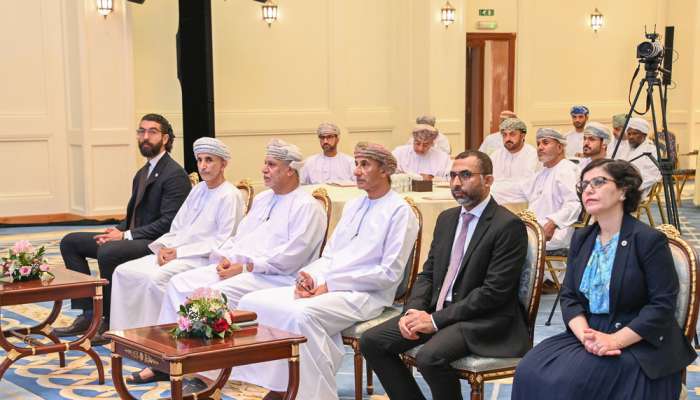
Muscat: The Omani Committee for International Humanitarian Law on Monday organised a symposium titled “International Humanitarian Law: The Reality and the Aspirations”.
The two-day symposium is being held at the Diplomatic Club in cooperation with the Mission of the International Committee of the Red Cross in Muscat.
Sheikh Humaid Ali Al Maani, Head of the Global Affairs Department at the Foreign Ministry, Chairman of the Omani Committee for International Humanitarian Law, said that the symposium aims “to achieve our common goals in humanitarian action, the need to spread knowledge of the concept of international humanitarian law, the challenges of its implementation and the classification of armed conflicts”.
The symposium also deals with the relationship between the International Humanitarian Law and humanitarian action and initiatives, he added.
For his part, Abdullah Mohammed Said, Head of the Mission of International Committee of the Red Cross in Muscat, valued the Sultanate of Oman’s repeated calls on all warring parties to respect the provisions of international humanitarian law, notably in the ongoing conflict in Gaza.
He expressed his appreciation for Oman’s efforts to deliver relief aid to the stranded population in the Gaza Strip, as well as the country’s support for organizations operating in this field, including the International Committee of the Red Cross.
The official stressed that the symposium underlines the best ways to provide maximum protection for victims of armed conflicts and their property.
“The best thing to do in this context is to comply with international humanitarian law and implement it effectively,” he explained.
The symposium deals with the principles of use of force and mechanisms for implementing international humanitarian law, including international jurisdictions, among other issues. It is attended by representatives of government institutions entrusted with international humanitarian law.
The symposium coincides with the 75th anniversary of the 1949 four Geneva Conventions and stresses the importance of achieving better implementation and compliance with international humanitarian law.
The abovementioned Geneva Conventions are the most ratified global pacts.
As many as 196 countries are party to the international statutes, and this makes them concrete global agreements comprising a set of obligations aimed at alleviating the suffering of civilians and other victims of armed conflicts.
Oman’s signing of the four Geneva Conventions reflects its keenness in international humanitarian law.
This interest led to the establishment of the Omani Committee for International Humanitarian Law and to the country’s positions calling for minimizing human suffering and emphasising commitment to international humanitarian law. -ONA